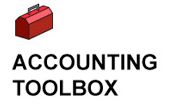It is a rare person in the accounting profession that possesses broad expertise in all aspects of the profession, or even a complete knowledge of their own specialty. However, everyone in the accounting profession should be familiar with how to research accounting or tangentially related topics. As an accounting major, you will be required to research current and proposed treatments of accounting-related topics. In addition, you should be knowledgeable about issues related to the industries that you support. Knowing how to research, comprehend, and apply the knowledge to the problem increases both your competency and your organizational value.
1. How to Research:
The UMGC Library is a great resource.
You can search by topic, by author, or by title. Click on the "Search by Subject" link to access the research groups, such as "Accounting" and "Business and Marketing." At the subject pages, you should explore the resources, including databases and websites. "Standards" includes links for accounting standards.
LIBS 150: Information Literacy and Research Methods
We highly recommend that everyone take the UMGC Library Skills course. It is a one-credit course that demonstrates the research process and identifies how to use Internet and print resources.
Research and Citation Guidance
Tutorials on various research topics, including how to use the Internet and methods on how to evaluate research options.
In accounting, research includes reliance on professional organizations. These websites often have newsletters and resources, some available to the public at no charge, and others reserved for members only. As leaders in the accounting and auditing field, the professional organizations serve as key references.
Web Sites - Guide to Accounting Resources – UMGC
Another collection of helpful websites.
Beyond the UMGC-recommended web links, your research may also take you to various websites, including:
How to Read a Balance Sheet at the Motley Fool
Accounting Information from NetMBA
Financial Statement Analysis - How to Prepare a Balance Sheet
At this website, click on the "see more about" and view additional links and topics; when you click one you will likely find more "see more about" topics in this "how to" accounting tutor resource. The web pages link to additional pages within the www.bizfinance.about.com website.
A key factor in research is the initial evaluation of the website. (Is this a credible source? Is it professionally done or simply someone's personal website?)
Review the source documents referenced in lower-level websites, including wiki resources, to reach the higher-level sources with greater credibility.
Good Websites for Related Topics from UMGC.
Subscribe to online sources that provide regular accounting updates:
These are often free e-mail-based resources and may include invitations to webinars and assist you in considering topics both academically and for your career. Most major public accounting firms, including Grant Thornton, have websites such as these.
Grant Thornton Thinking offers subscription accounting information.
Accounting Research Online is offered by KPMG and addresses different accounting topics. Note: There is a fee after the initial trial period.
AccountingLink is offered by Ernst & Young, again on different accounting topics.
Comperio is from PricewaterhouseCoopers.
Use publicly available reports.
EDGAR is available to research public companies that file with the U.S. Securities and Exchange Commission (SEC). This is a source for the annual SEC 10-K report, useful both in accounting and other business courses.
Every corporation, not-for-profit organization, or government entity has a website on which financial data can be located.
Consider accounting-focused research books.
Although books do go out of print, the topics should be readily available. You can also search for the terms in these titles for Internet sources. A few include:
Fee-based services that can be accessed for business data.
Do not forget the AICPA or IFRS for the latest in accounting updates, or the IRS for the latest in tax law.
2. How to Present Your Research:
Reviewing the communications process will help in determining the best presentation options for your audience.
Publications on Research:
Many of these publications require a subscription. Please check with the UMGC libraries for access. See the UMGC site, Locating and Evaluating Scholarly Articles.
The Electronic Journal of Business Research Methods (EJBRM) is a scholarly journal on business research methods.
The Journal of Business Research applies business theory to practical situations.
The Wall Street Journal
Although not a scholarly source, The Wall Street Journal provides excellent business insights.
3. How Not to Research:
We will discuss accounting ethics at length at a later time. However, we will mention here that plagiarism and the purchasing of papers from online "paper mills" are both examples of a lack of accounting ethics and a violation of the UMGC Policy on Academic Dishonesty and Plagiarism.
Plagiarism can happen to professional researchers. In the last decades, two well-known historians, Doris Kearns Goodwin (Team of Rivals) and Stephen Ambrose (Band of Brothers), were both accused of plagiarism. Take the time to look at what happened and see how it affected the careers of two excellent historians.
To reduce the potential of plagiarism appearing in your work, there are readily available guides.
Purdue OWL: Avoiding Plagiarism is a widely referenced tool that can help you understand the concept of plagiarism and how to avoid it. This features tips on quotations, paraphrasing, and summarizing materials.
